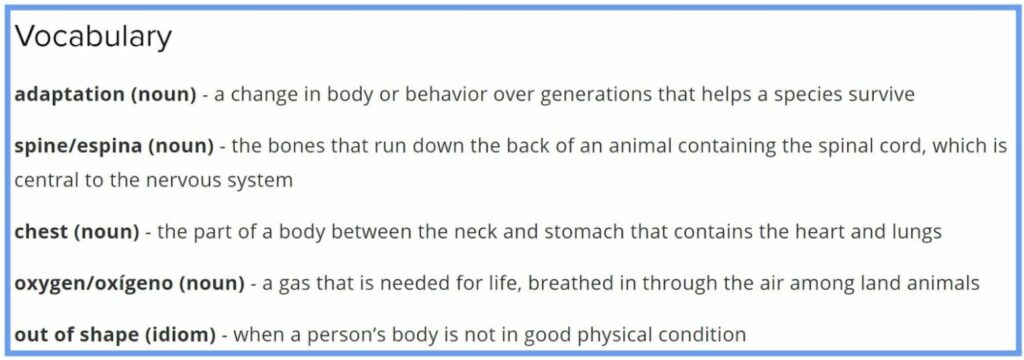Last Updated on January 17, 2023
Our ELD Lesson Library has been carefully designed to support beginning and intermediate-level English language learners develop proficiency. As these students build a foundation of literacy in another language, while deepening content knowledge, educators can use Listenwise features to scaffold development of essential components of literacy, including phonemic awareness.
Phonemic awareness is the ability to identify, hear, and manipulate the individual sounds in spoken words, known as phonemes. Phonemic awareness is important to developing skills in all domains of literacy.
When specific phonemes in an English word differ from those in an emergent EL’s native language, learners may struggle to pronounce words and comprehend their meanings. For example, an L1 Spanish speaker may not initially hear the distinction between the short and long vowel sounds in the English words “ship” and “sheep.” Therefore, it may be difficult to comprehend the difference without direct instruction and even then, it may take many repeated exposures to eventually develop separate phonemic categories. Listenwise’s ELD lessons address this important language learning issue.
Read on to learn about three ways that Listenwise’s ELD lesson features can help emergent ELs build phonemic awareness!
#1 Interactive Transcripts
ELD lessons include Listenwise’s interactive transcripts, so ELs can hear how the phonemes in a word sound as they see the graphemes, the letters and spellings that represent those sounds in the word. For example, while listening to the audio story “The First Cities” and reading along with the interactive transcript, students can hear and see words like “hunted” and “gathered,” and learn how the suffix “ed” sounds different in different contexts. Building knowledge of sound-letter correspondences in English can support comprehension and advance students’ skills in all domains of English language literacy.
In the earliest stage of language acquisition, students may do more listening than speaking. Colorín Colorado suggests emphasizing listening comprehension during this time by using read-alouds and music. Listenwise’s collection of podcast lessons that include interactive transcripts work well during this stage of language development.
#2 Multiple Listens
The teacher’s guide included in ELD lessons provides guidance and listening organizers to support three close listens of each audio story. The first close listen focuses on language with an organizer to track vocabulary, the second focuses on language and content with a cloze activity to place language that is key to comprehension in context, and the third focuses on content with an organizer to guide note-taking and support general comprehension. Chunking the goals for listening can help ELs listen more strategically. They will also have multiple opportunities to hear authentic pronunciations in context.
#3 Authentic Voices
Along with providing multiple opportunities for students to listen, ELD lessons provide repeated exposure to authentically spoken English in a variety of voices and discourse contexts. Because Listenwise podcasts and videos are curated from many high-quality sources, students will hear English accents and dialects from around the world to support their phonemic awareness.
#4 Vocabulary Support with Cognates
All ELD lessons include a list of vocabulary words or idiomatic phrases that are important to understanding the audio story and/or that students may encounter again. When applicable, Spanish cognates are included with the vocabulary words. Cognates can help students make connections to their native language regarding pronunciation, spelling, and meaning. They may also help ELs notice the patterns and sounds of root words, prefixes, and suffixes.



